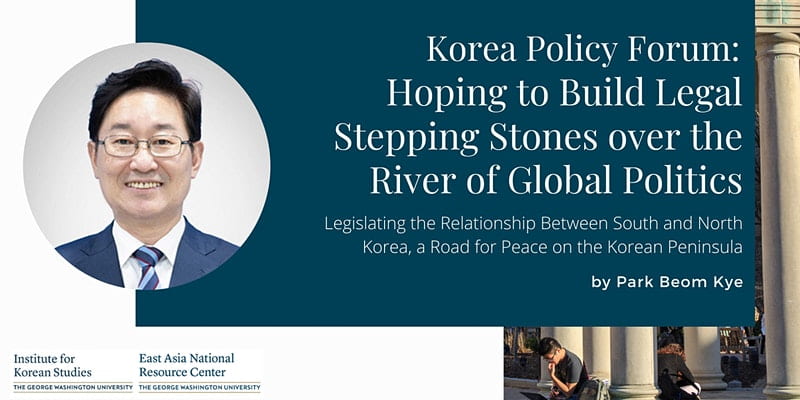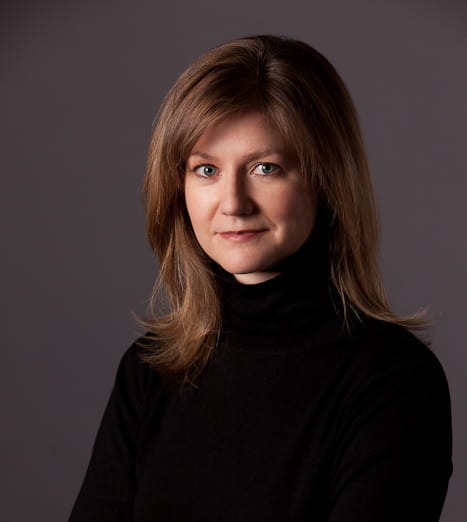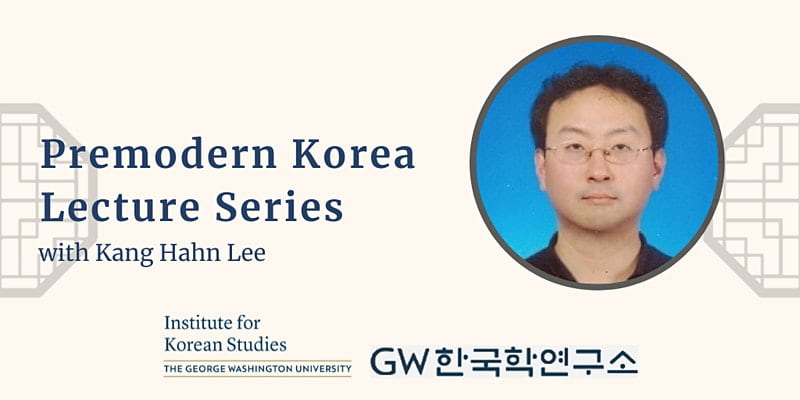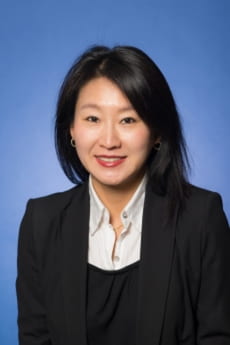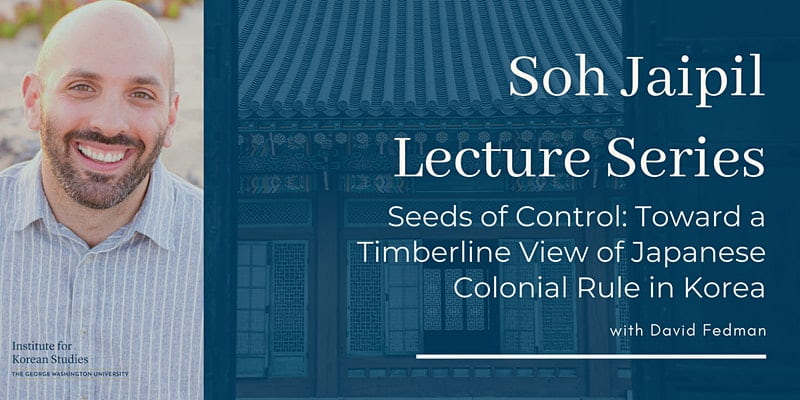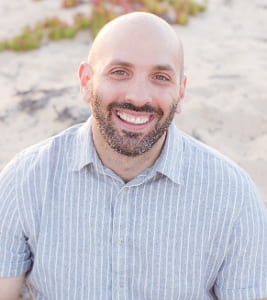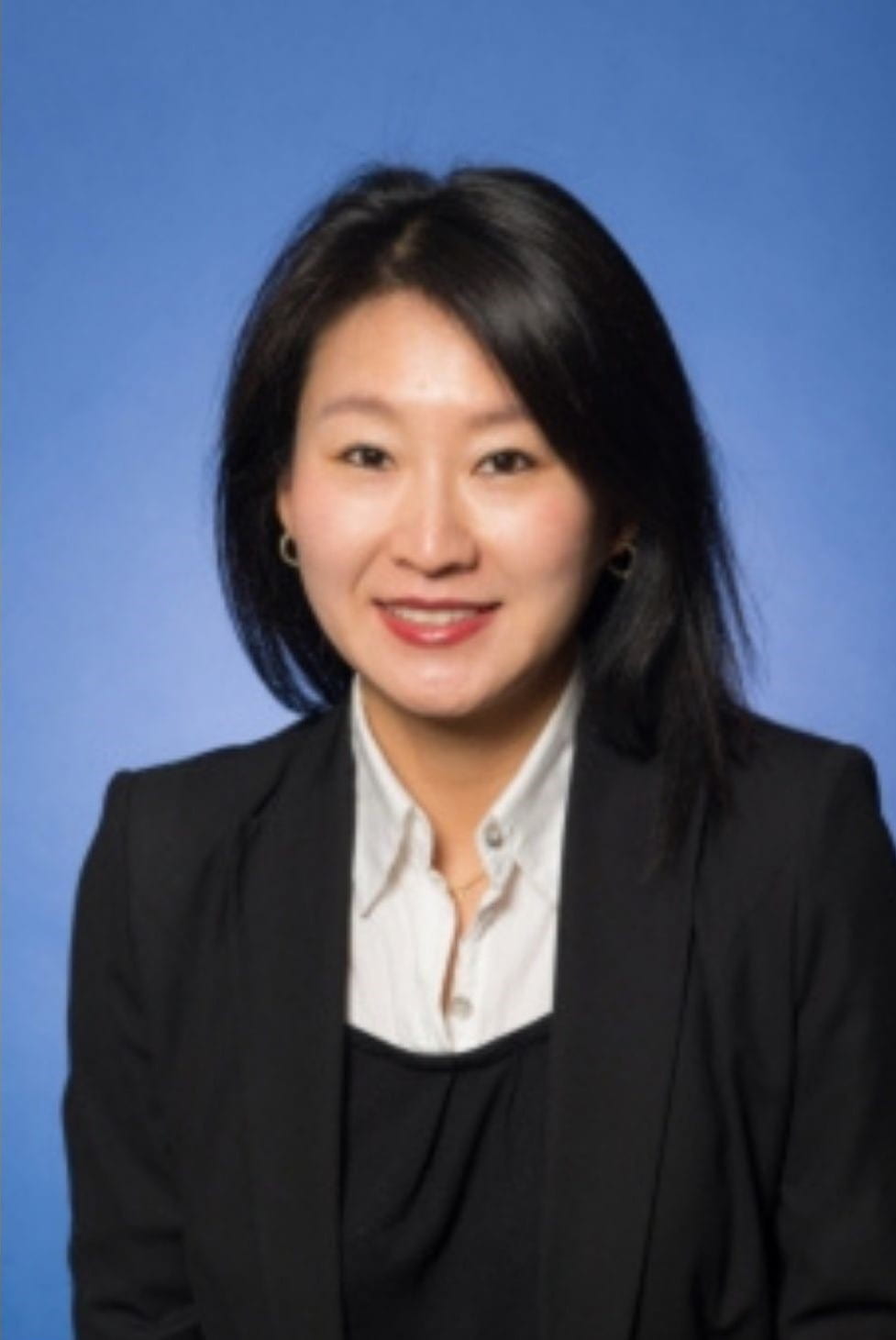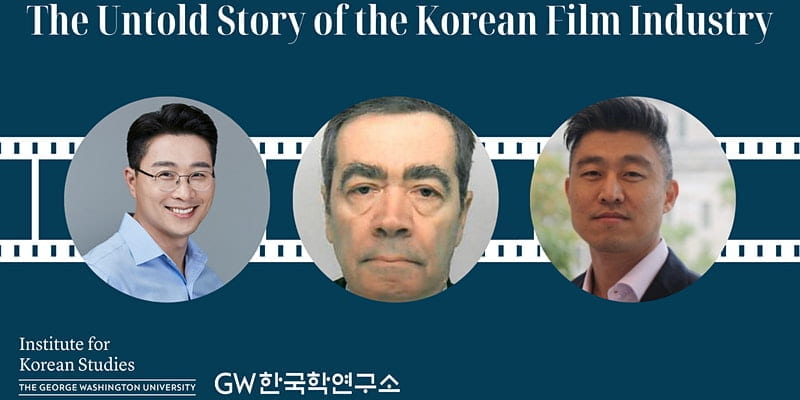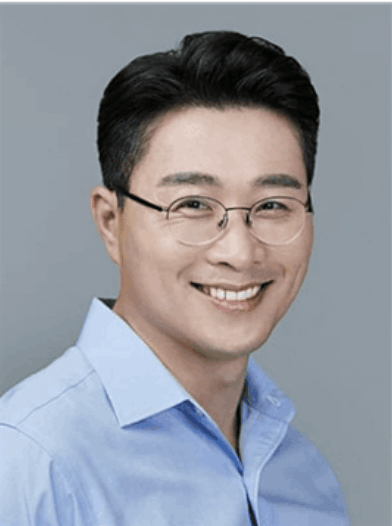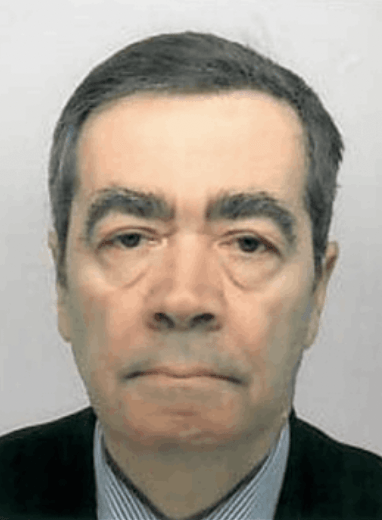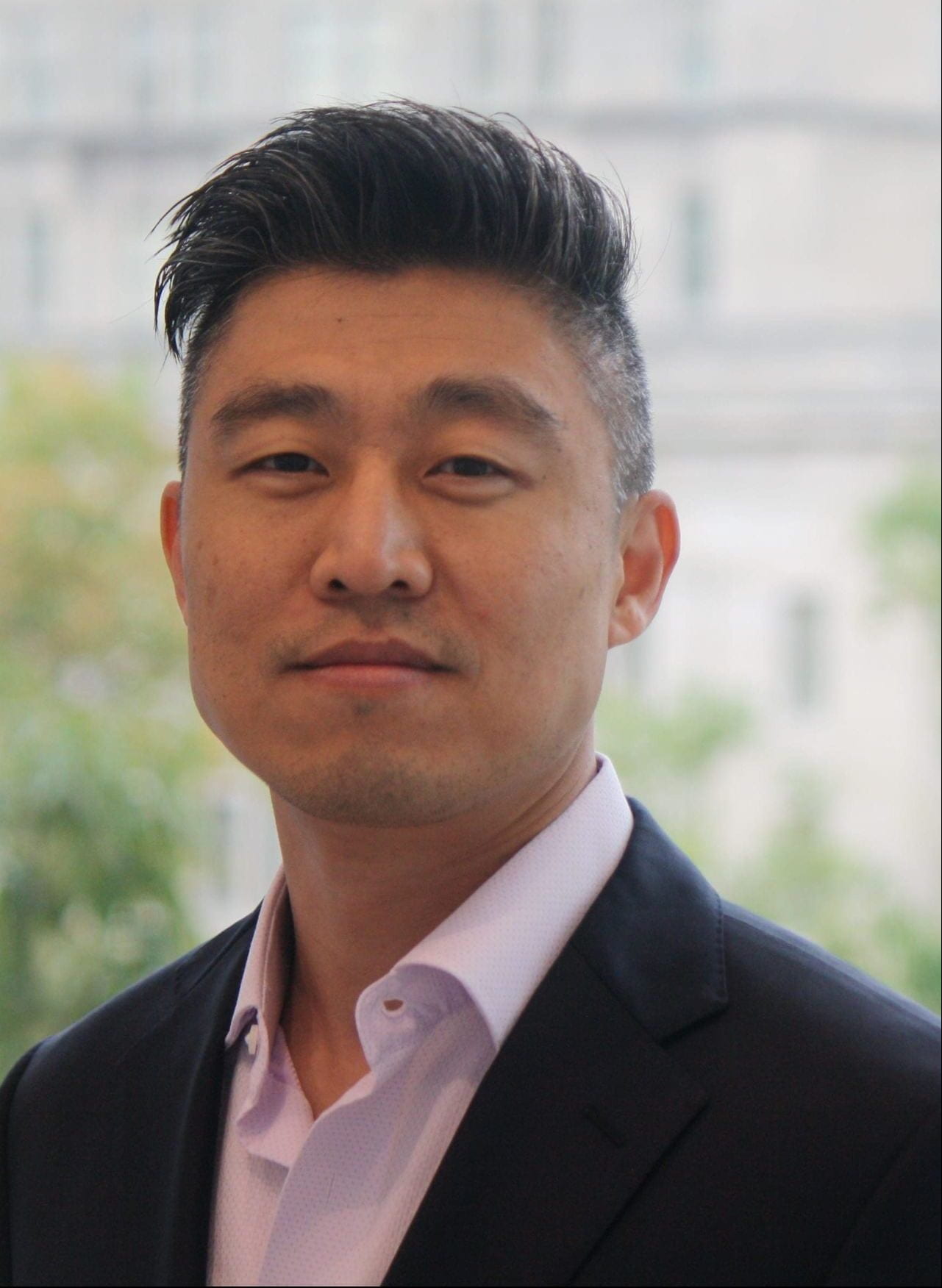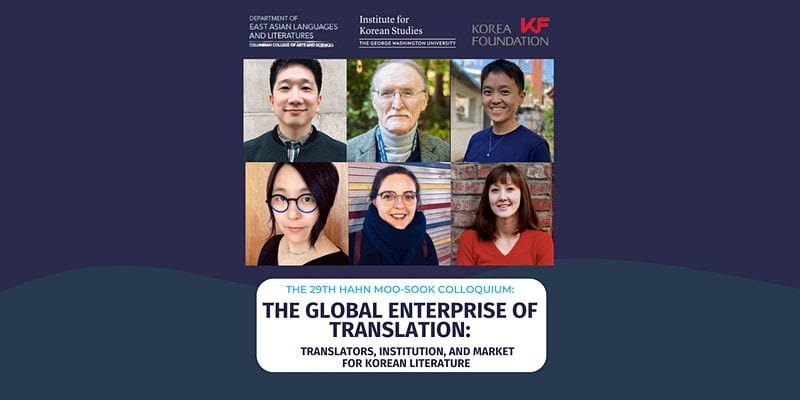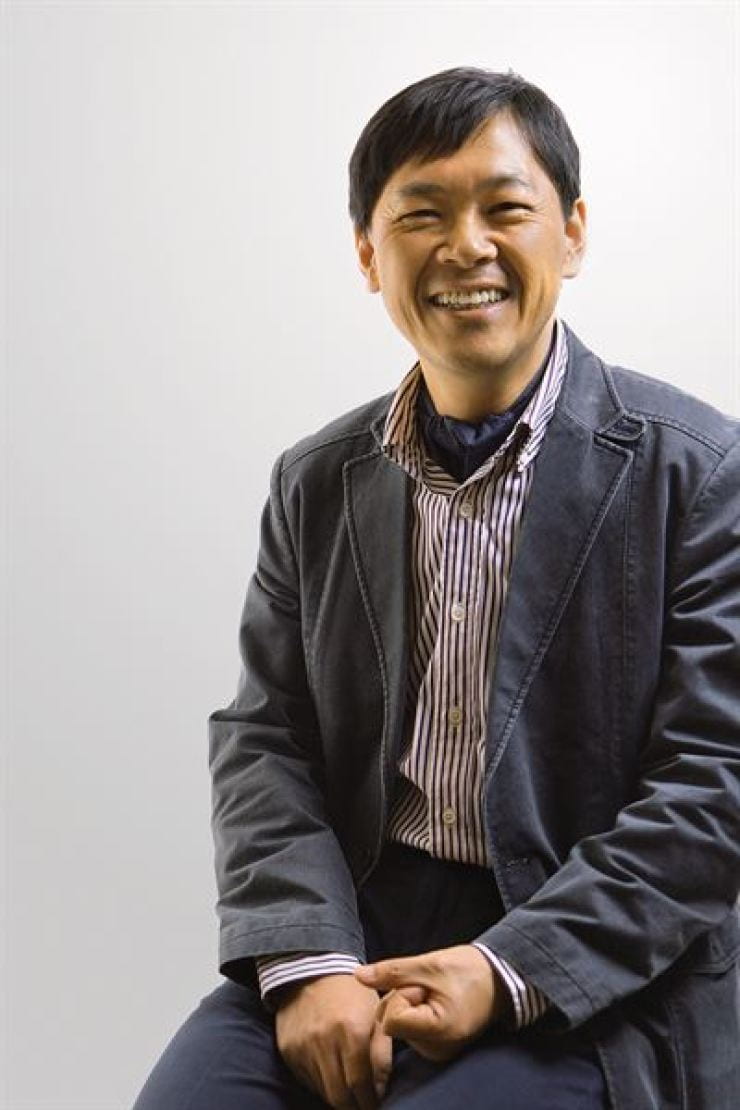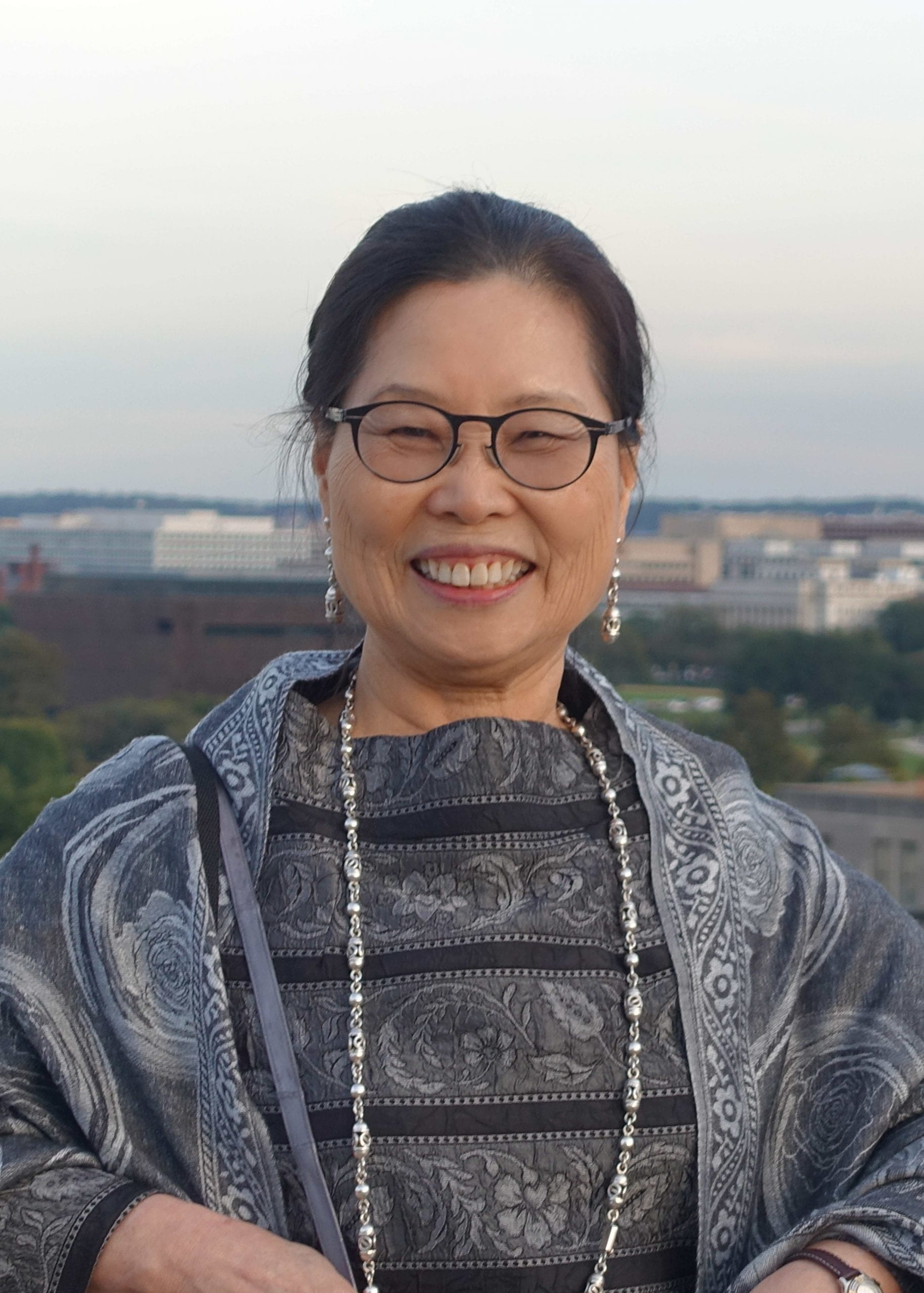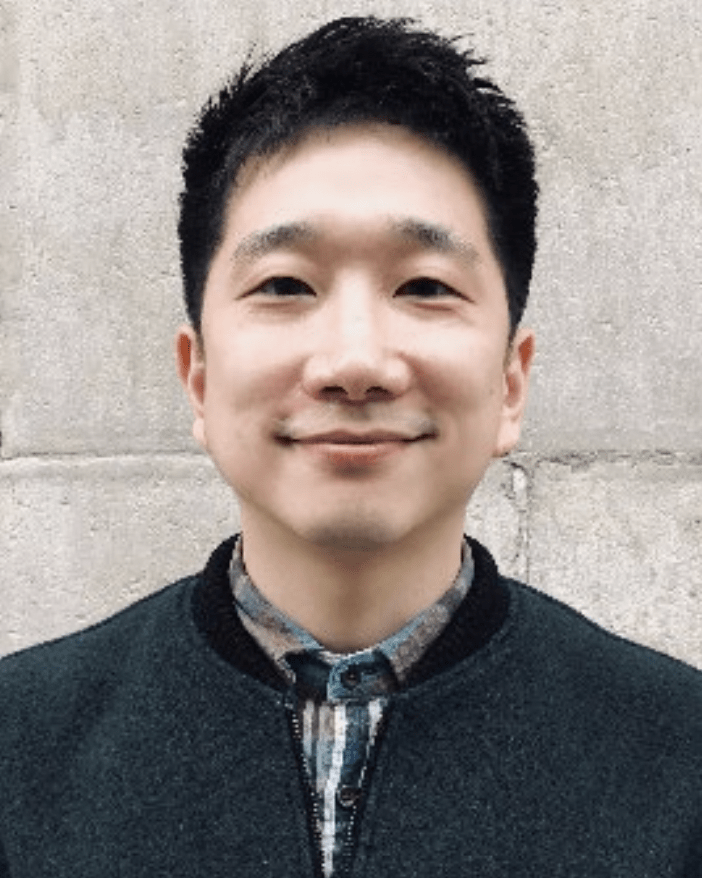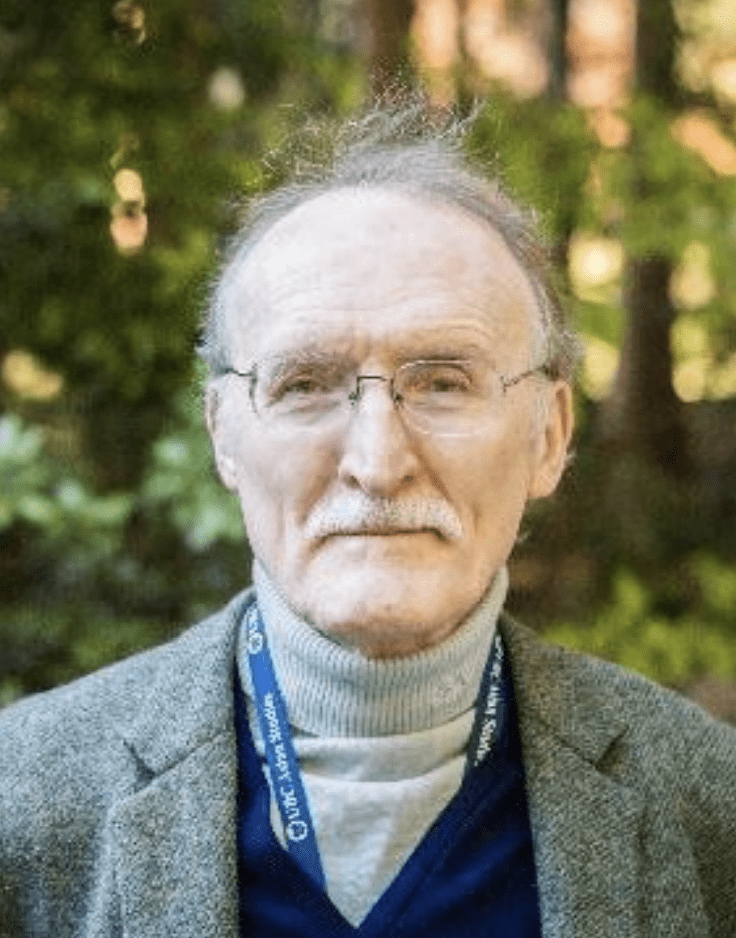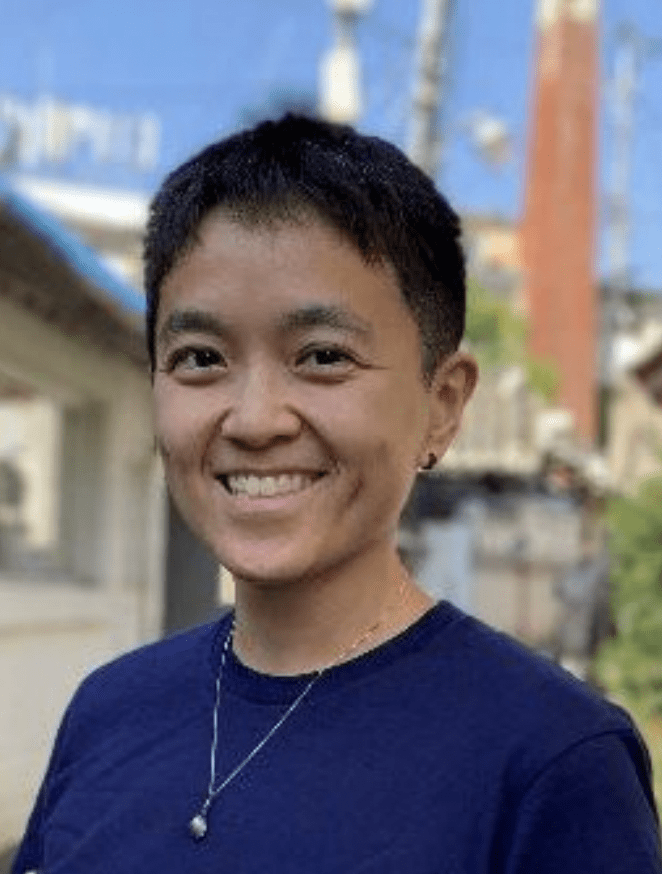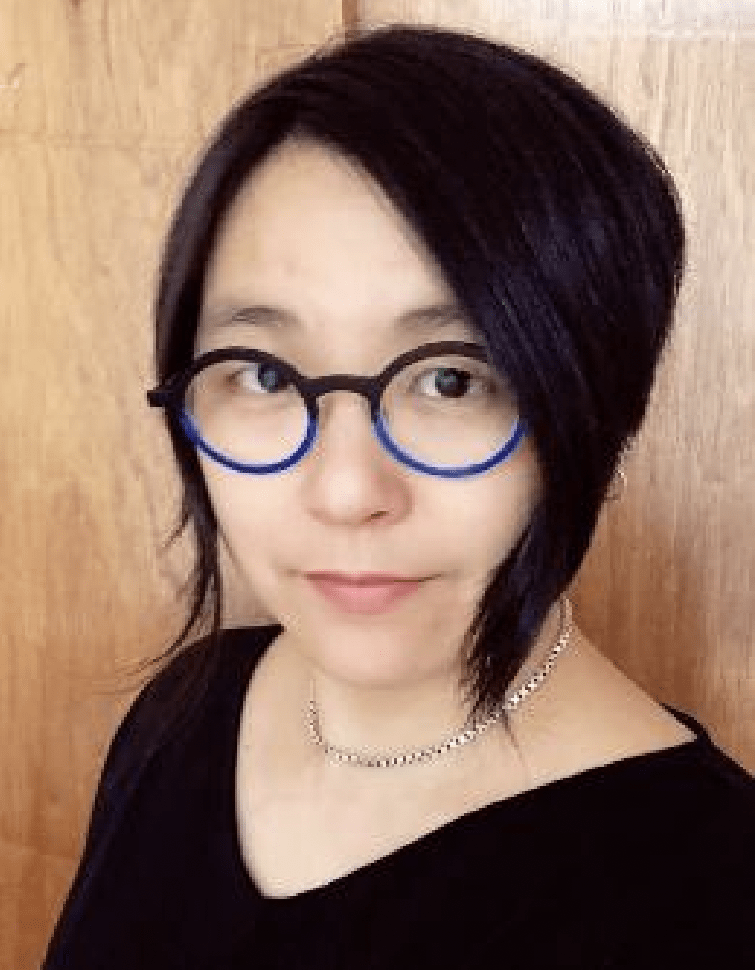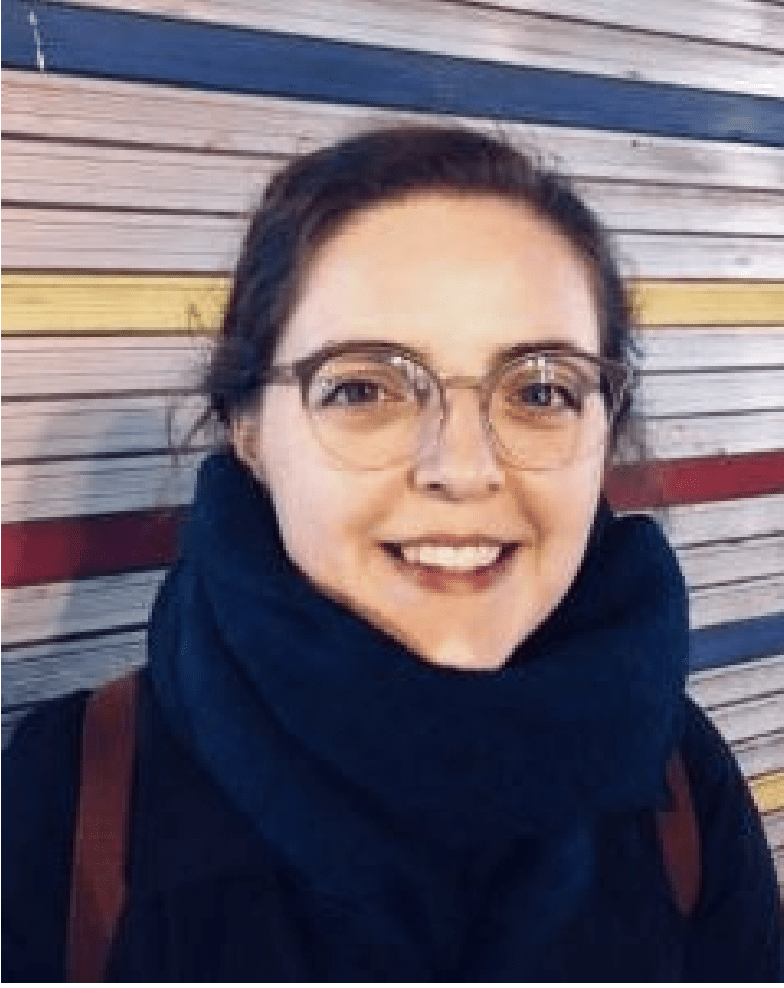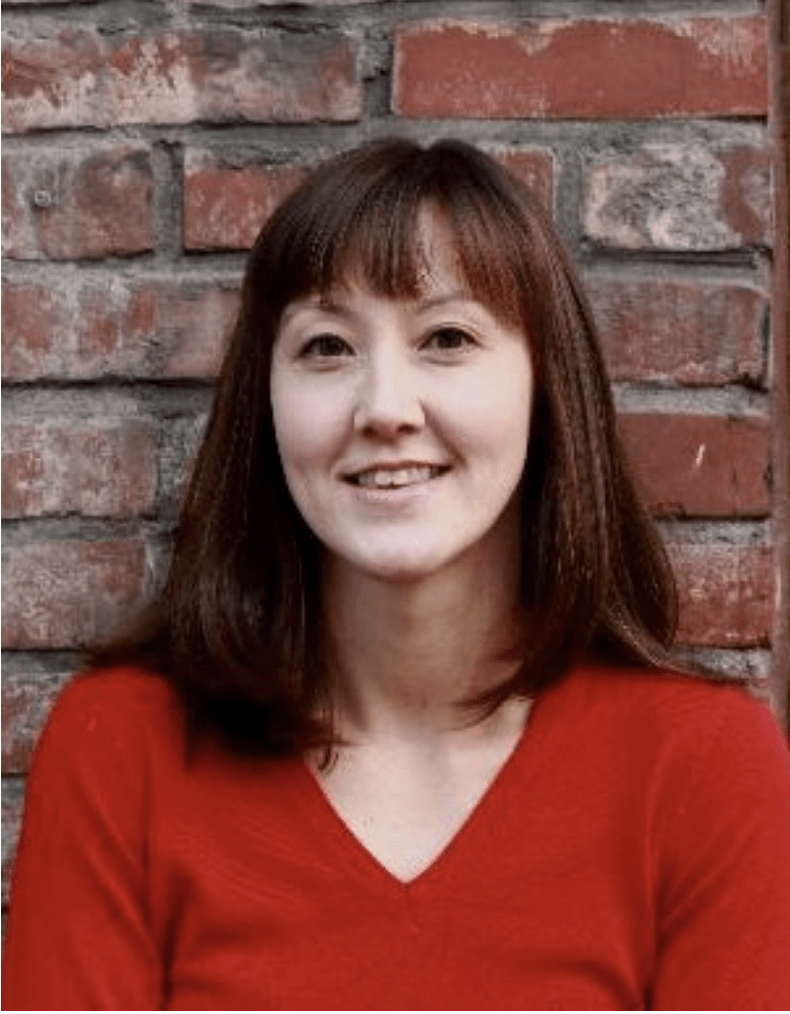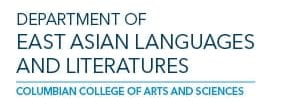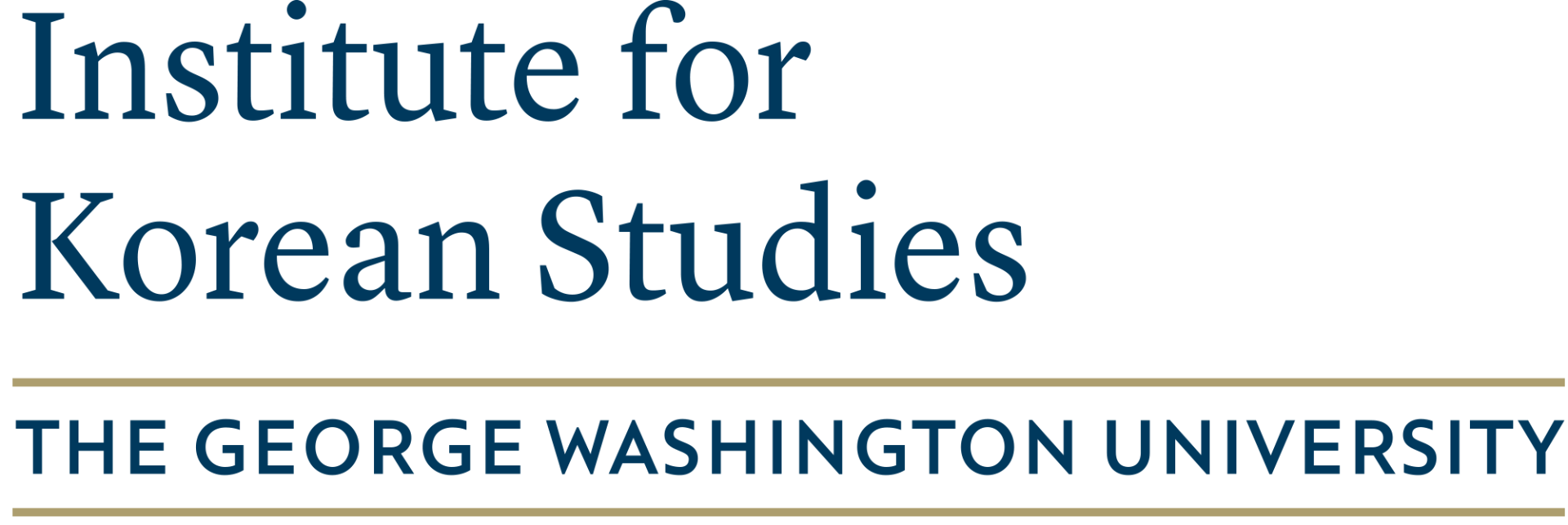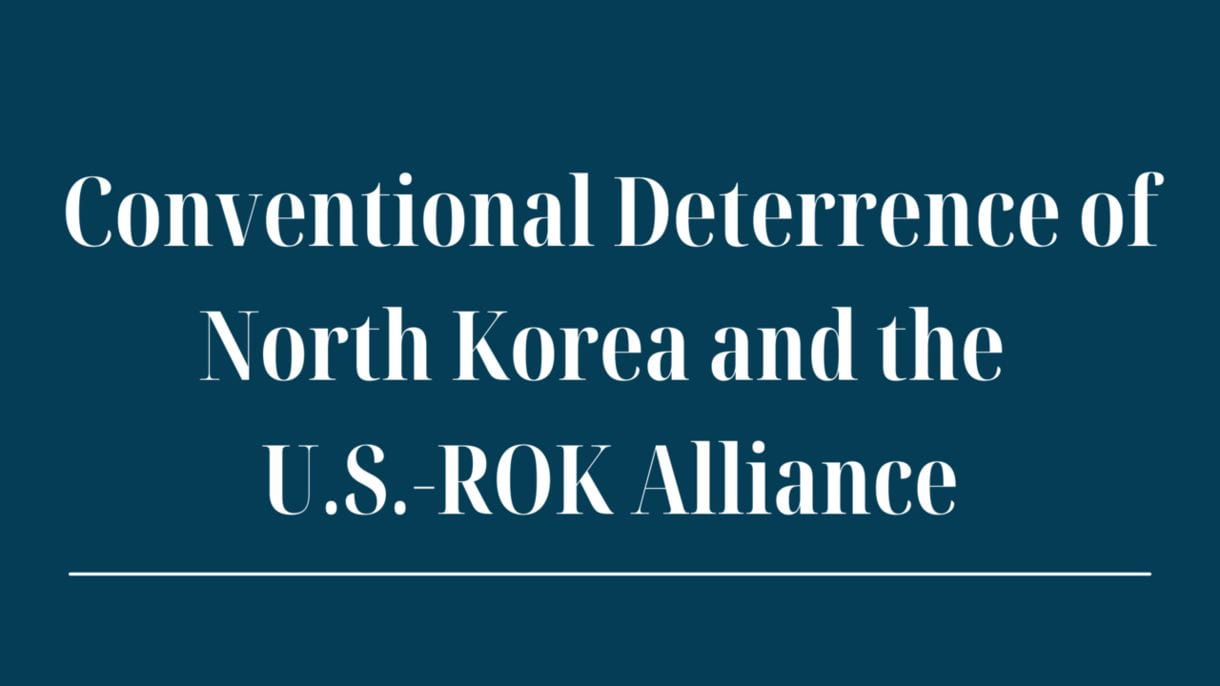Korea Policy Forum
South Korea’s Presidential Election & US-ROK Relations
Tuesday, December 7, 2021
9:00 AM – 10:00 AM (EST)
11:00 PM – 12:00 AM (KST)
Zoom Event
South Koreans will soon go to the polls to elect their next president on March 9, 2022. The two leading candidates are former Gyeonggi Province Governor Lee Jae-myung from the ruling Democratic Party and former Prosecutor General Yoon Seok-youl from the opposition People Power Party. As these two candidates hold divergent views on foreign policy, the results of this consequential election will surely have a major impact on US-ROK relations.
The GW Institute for Korean Studies has invited a prominent supporter of each major candidate to share their views on the race and their preferred candidate’s foreign policy goals. Joon Hyung Kim (former Chancellor of the Korea National Diplomatic Academy) and Beomchul Shin (Director of Diplomacy and Security Center at Korea Research Institute for National Strategy) will be presenting on the foreign policy of Lee Jae-myung and Yoon Seok-youl, respectively. Their presentations will be followed by comments from two expert discussants, Celeste Arrington (Professor of Political Science and International Affairs at GW) and Mark Tokola (Vice President of the Korea Economic Institute of America). We invite you to join us for an engaging discussion on the upcoming election and its implications for the future of US-ROK relations.
This event is on the record and open to the public.
Speaker

Beomchul Shin is the Director of the Diplomacy and Security Center at the Korea Research Institute for National Strategy (KRINS). Before joining the KRINS, he worked at the Asan Institute for Policy Studies. Until March 2018, he served at the Korea National Diplomatic Academy as tenured professor. He also served for the ROK Ministry of Foreign Affairs as the Director-General for Policy Planning from 2013 to 2016. Before joining the Ministry, he was the Head of the North Korean Military Studies Research Division at the Korea Institute for Defense Analyses. Prior to that, he worked very closely with the Minister of National Defense of Korea as the Senior Policy Advisor in 2009 and 2010. He also has served in many advisory positions both at the National Security Council at the Office of the President and the National Assembly Foreign Affairs and Unification Committee. He is currently a member of the Board of Directors at the Korean Society of International Law as well. Dr. Shin is the author of several books on law and security, including North Korean Military: A Secret Report (2013) and International Law and the Use of Force (2008). He also has been publishing many articles on the Korea-U.S. alliance, North Korea, and Northeast Asian politics and security. He received his B.A. from Chungnam National University and did his graduate studies at at the School of Law at Seoul National University. He received his S.J.D. (Doctor of Judicial Science) from Georgetown University Law Center in 2007.
Discussants
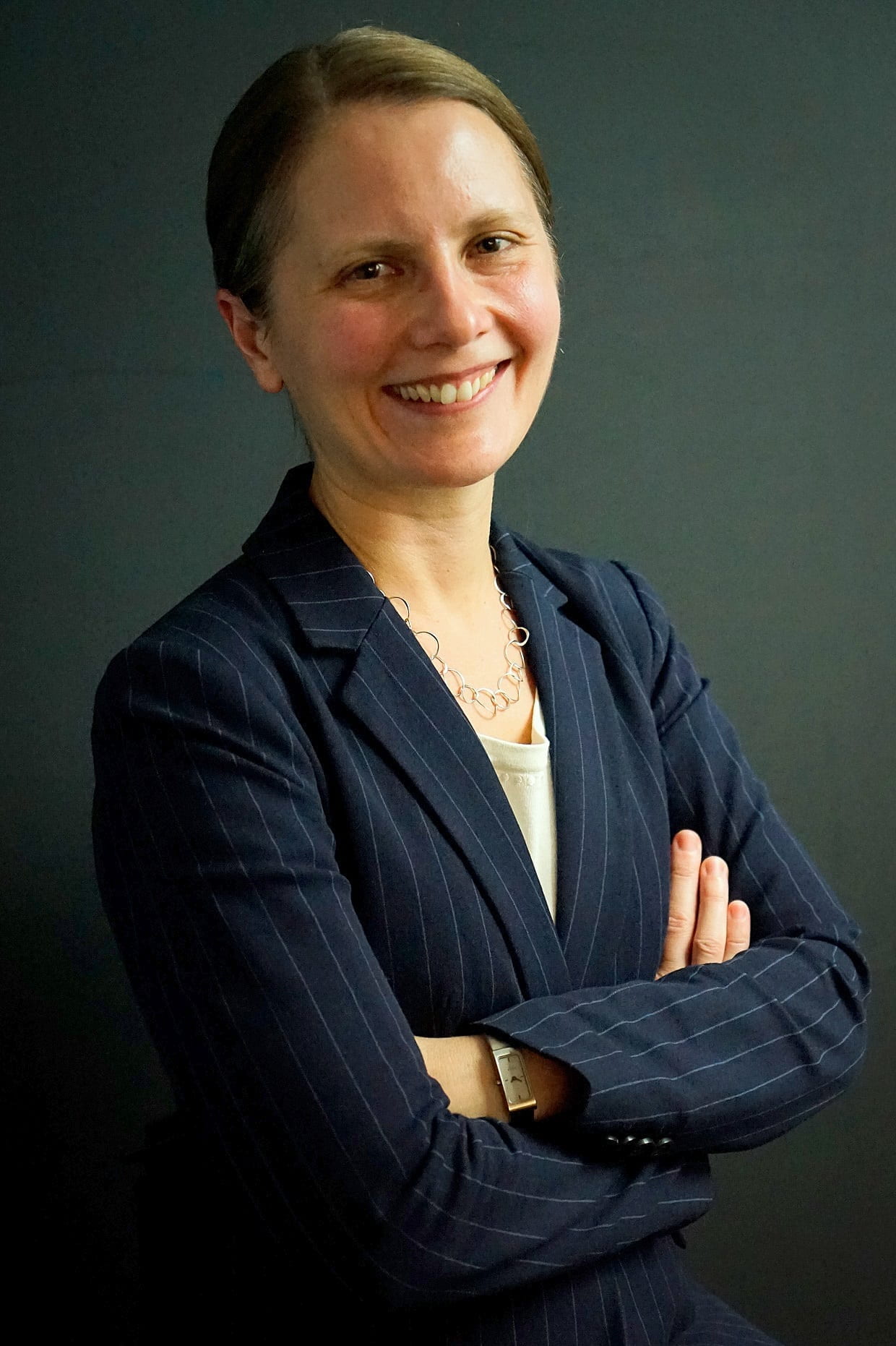
Celeste Arrington is Korea Foundation Associate Professor of Political Science and International Affairs at GW. She specializes in comparative politics, with a regional focus on the Koreas and Japan. Her research and teaching focus on law and social movements, the media, lawyers, policy processes, historical justice, North Korean human rights, and qualitative methods. She is also interested in the international relations and security of Northeast Asia and transnational activism. She is the author of Accidental Activists: Victim Movements and Governmental Accountability in Japan and South Korea (2016) and has published in Comparative Political Studies, Law & Society Review, Journal of East Asian Studies, Pacific Affairs, Asian Survey, and the Washington Post, among others. She received a Ph.D. from the University of California, Berkeley, an MPhil from the University of Cambridge, and an A.B. from Princeton University. She is currently writing a book that analyzes the role of lawyers and legal activism in Japanese and Korean policies related to persons with disabilities and tobacco control.
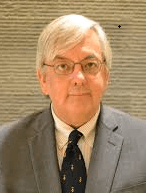
Mark Tokola is Vice President of the Korea Economic Institute of America in Washington, DC. He retired as a U.S. Senior Foreign Service Officer with the rank of Minister-Counselor in September 2014. His last posting was as the Minister Counselor for Political Affairs at US Embassy in London. Previously he had served as Deputy Chief of Mission at the American Embassies in Seoul, Republic of Korea; Ulaanbaatar, Mongolia; and, Reykjavik, Iceland. Among his other postings were two tours at the US Mission to the European Union in Brussels, Minister-Counselor for Economic Affairs at Embassy London, and Economic Counselor at the US Embassy in The Hague. He also served as Director of the Iraq Transition Assistance Office (ITAO) in Baghdad from 2007-2008. Mr. Tokola received the State Department’s Superior Honor Award for his work on implementing the Dayton Peace Accords while serving as Political Counselor in Sarajevo, Bosnia-Herzegovina from 1997-1999. He holds a BA in International Relations from Pomona College in Claremont, California, and an LL.M. in European Community Law from the University of Edinburgh, Scotland. Mr. Tokola serves on the Board of Governors of DACOR: An Organization of Foreign Affairs Professionals, and on the Board of Trustees of the Bacon House Foundation.
Moderator
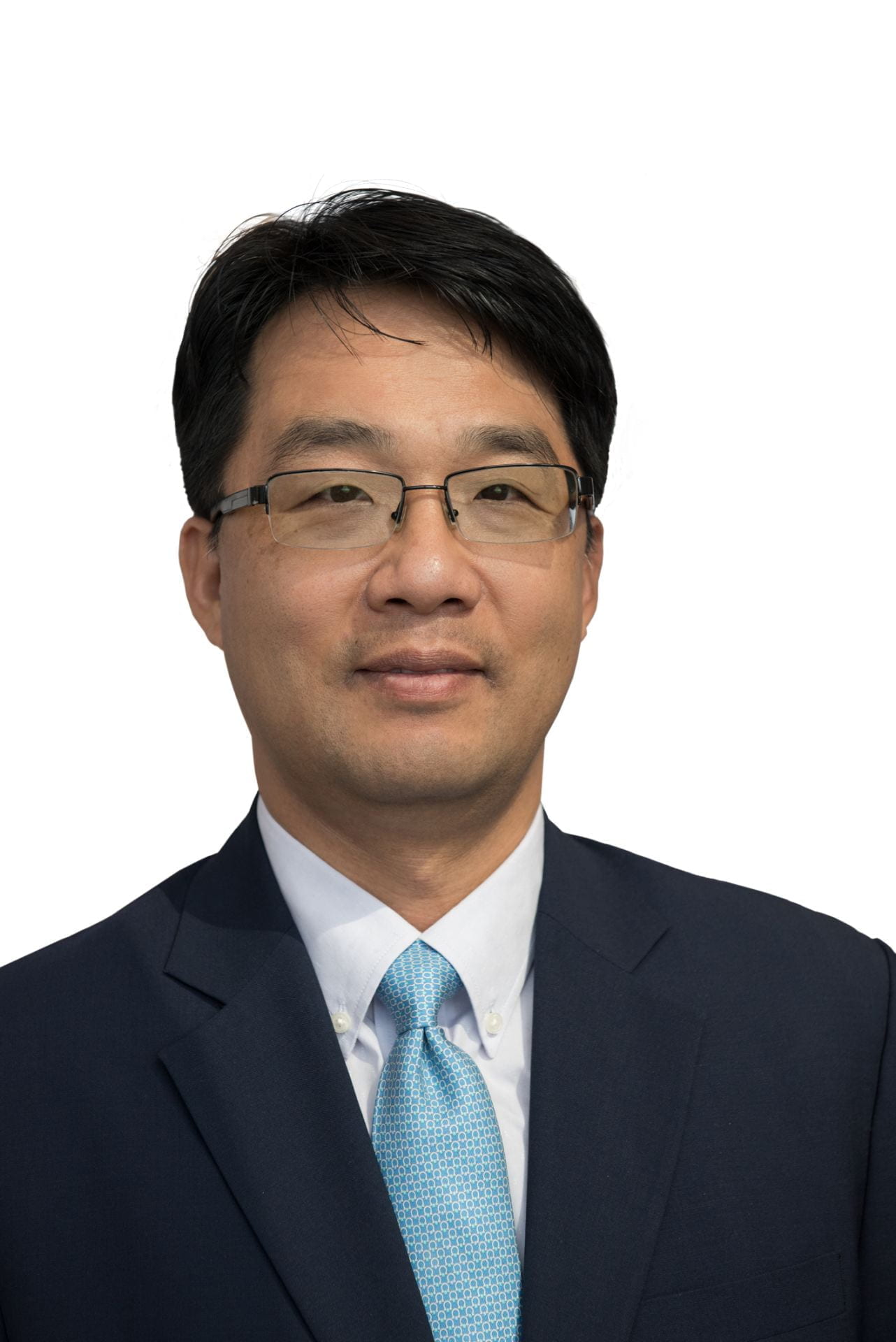
Yonho Kim is an Associate Research Professor of Practice and the Associate Director of GW Institute for Korean Studies. He specializes in North Korea’s mobile telecommunications and U.S. policy towards North Korea. Kim is the author of North Korean Phone Money: Airtime Transfers as a Precursor to Mobile Payment System (2020), North Korea’s Mobile Telecommunications and Private Transportation Services in the Kim Jong-un Era (2019) and Cell Phones in North Korea: Has North Korea Entered the Telecommunications Revolution? (2014). His research findings were covered by various media outlets, including Wall Street Journal, The Atlantic, Yonhap News, and Libération. Prior to joining GWIKS, he extensively interacted with the Washington policy circle on the Korean peninsula as Senior Researcher of the U.S.-Korea Institute at Johns Hopkins University School of Advanced International Studies, Senior Reporter for Voice of America’s Korean Service, and Assistant Director of the Atlantic Council’s Program on Korea in Transition. He holds a B.A. and M.A. in International Relations from Seoul National University, and an M.A. in International Relations and International Economics from Johns Hopkins University School of Advanced International Studies.


















